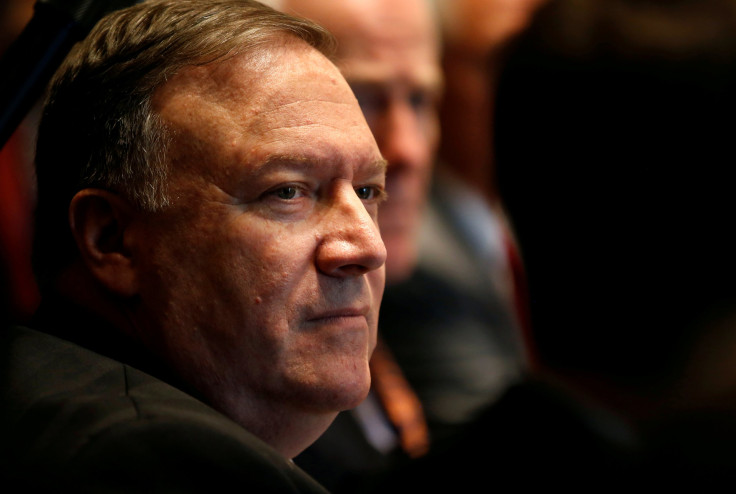Pompeo Says Won't Put Timeline On North Korea Denuclearization Steps: CNN

U.S. Secretary of State Mike Pompeo has said he will not put a timeline on negotiations for North Korea's denuclearization, contradicting a senior defense official who said Washington would soon present a timeline to North Korea with "specific asks."
Speaking to CNN in a telephone interview conducted on Sunday and reported by the network on Monday, Pompeo said he wanted to see continued progress toward North Korean denuclearization and that the administration would regularly assess Pyongyang's seriousness about abandoning its nuclear program.
"I am not going to put a timeline on it, whether that's two months, six months, we are committed to moving forward in an expeditious moment to see if we can achieve what both leaders set out to do," Pompeo told CNN, referring to a June 12 summit between Trump and North Korean leader Kim Jong Un.
Pompeo, who has been charged with leading negotiations aimed at persuading North Korea to give up a nuclear weapons program that threatens the United States, said he would "constantly reassess" whether enough progress was being made to continue talks.
"We hope that we will have an ongoing process of making progress," CNN quoted him as saying.
Pompeo's remarks contrasted sharply with comments from a senior defense official who briefed reporters ahead of a trip to Asia by U.S. Secretary of Defense Jim Mattis and said Washington would soon present a timeline to North Korea with "specific asks."
Pompeo himself told reporters the day after the Singapore summit Washington hoped to achieve "major disarmament" by North Korea within Trump's current term, which ends on Jan. 20, 2021.
And Trump said last week the "number-one statement" in the document he and Kim signed in Singapore was "we will immediately begin total denuclearization of North Korea," although there was no such statement in the text.
In the joint statement, Kim "reaffirmed his firm and unwavering commitment to complete denuclearization of the Korean Peninsula," but made no reference to a timeline, and going into the summit, Pyongyang repeatedly rejected unilateral nuclear disarmament.
Referring to Trump's decision to suspend joint military exercises with South Korea, which North Korea has long denounced as provocative, Pompeo told CNN this move would last "only so long as there is a good faith negotiation progress, productive results being achieved.
"If we can't do that, if it turns out that there is no capacity to deliver the outcome that both presidents said they wanted, yeah, we reassess."
Pompeo said a week ago he would likely travel back to North Korea "before too terribly long" to try to flesh out commitments made at the summit. The State Department has since said it has no travel plans to announce.
On Monday, Pentagon spokeswoman Dana White said defense officials would only speak to military-related aspects of negotiations on North Korea and that there was "no specific timeline" for the diplomatic process.
CNN said Pompeo suggested it was too soon to expect a detailed roadmap after 40 years of tensions but insisted that Kim had been "unequivocal" about his willingness to denuclearize.
"There are understandings that have been put together prior to the summit, some that took place when the president was in Singapore that I think put us on the right trajectory so that we can build out a framework for success," Pompeo said.
© Copyright Thomson Reuters 2024. All rights reserved.




















